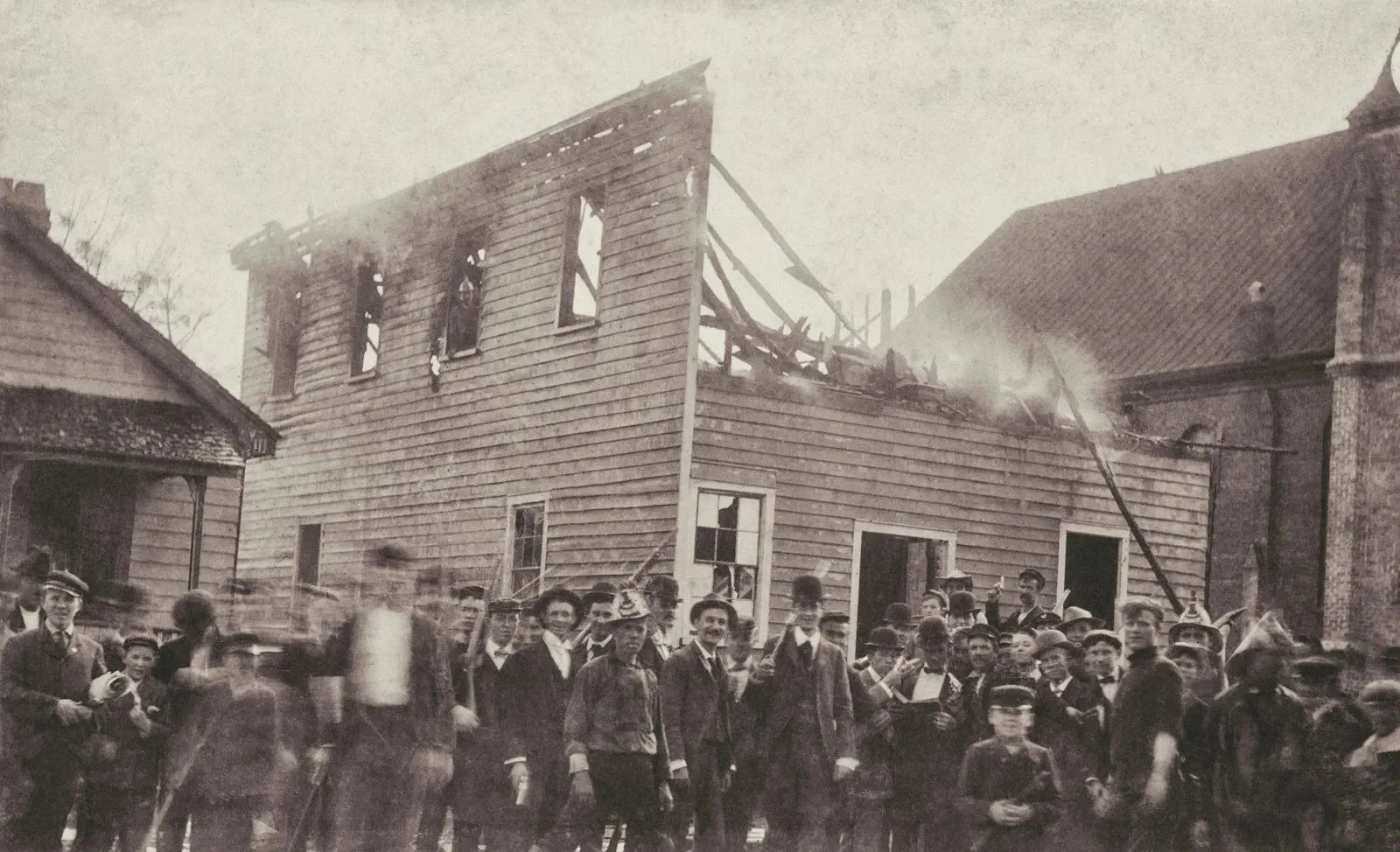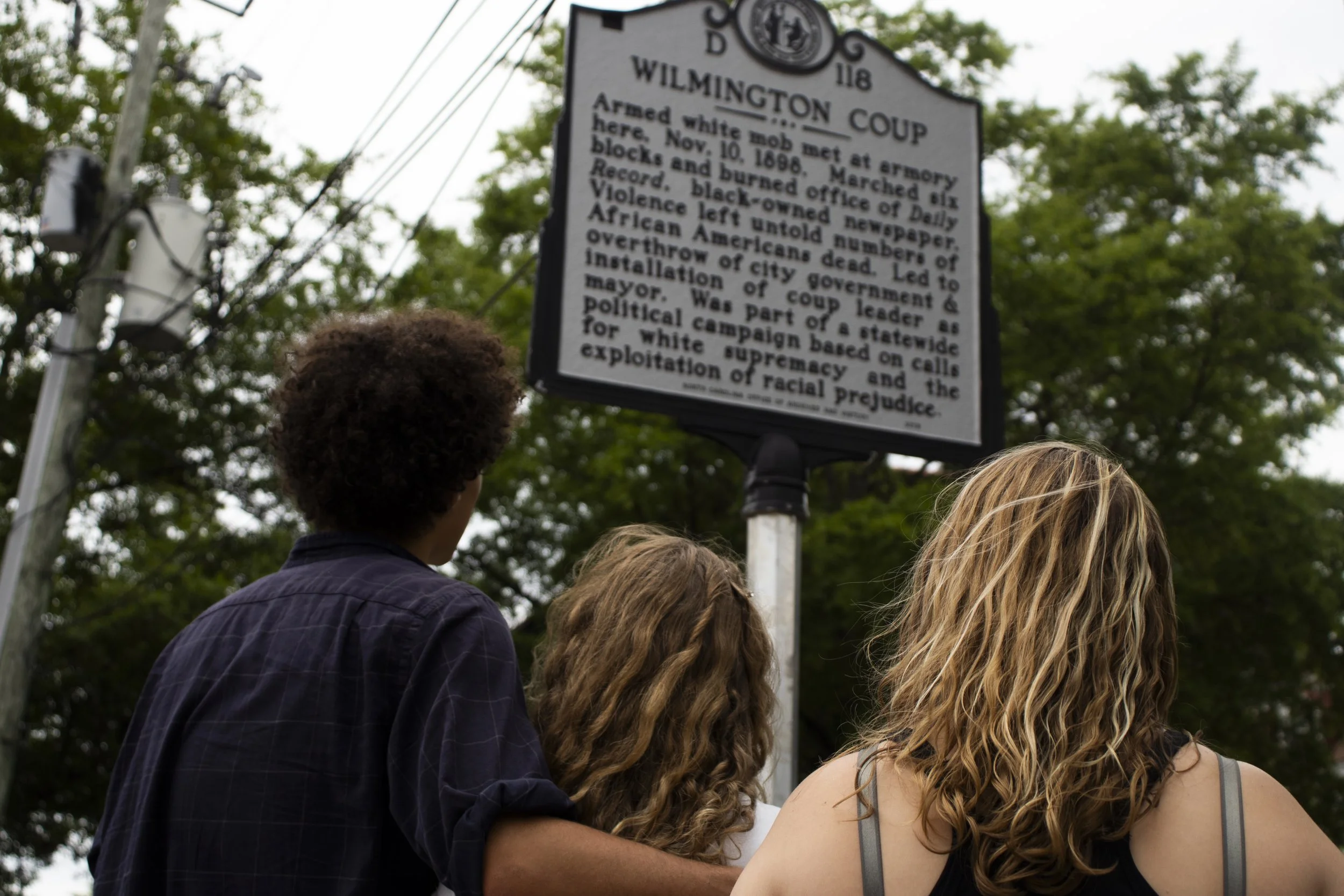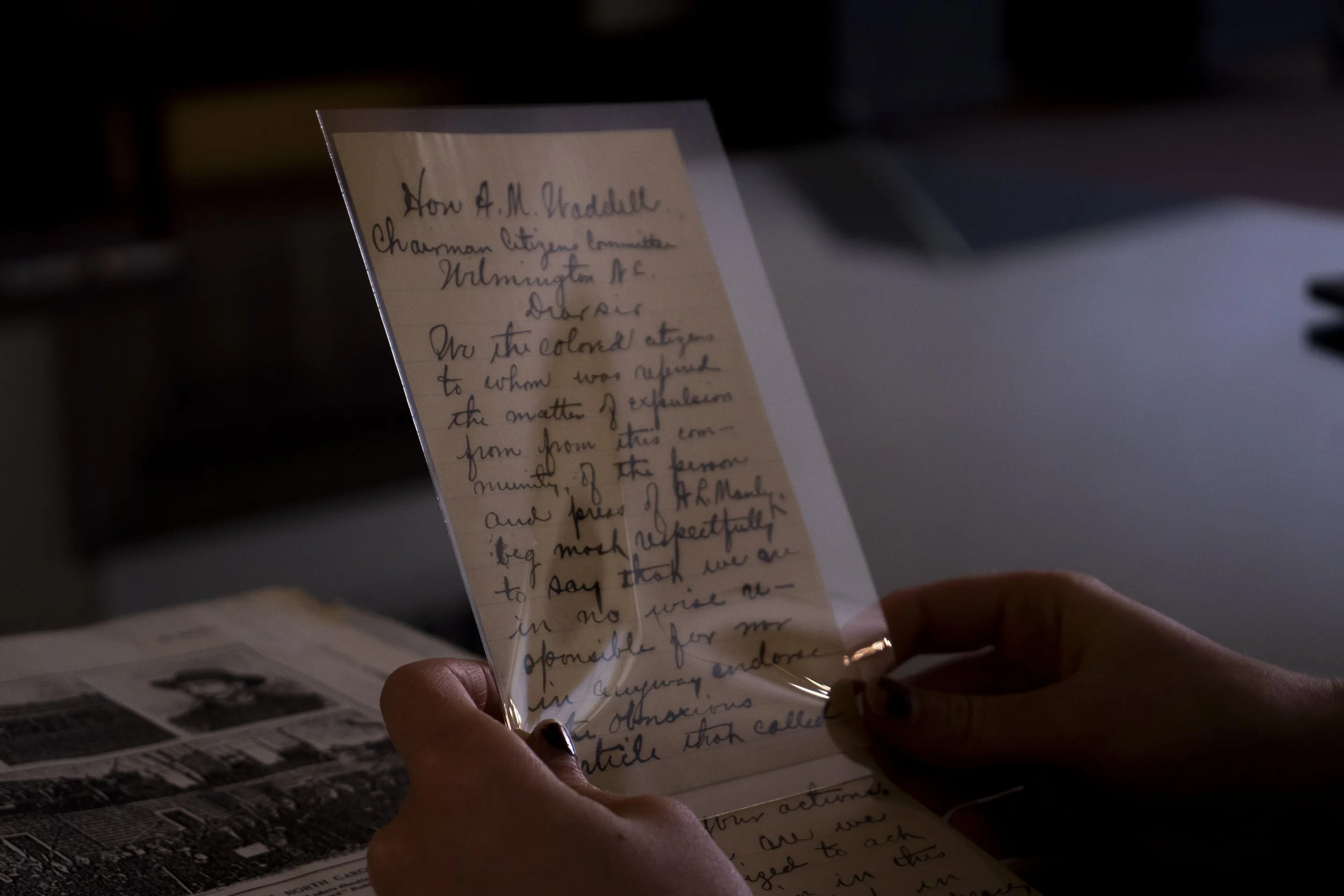
Waddell
The Wilmington massacre was the only successful coup d’etat on U.S. soil.

Lucia Stone Smith is a second-year student at the University of North Carolina. In July 2024, she began a search to find her ancestry through a genealogy website. While searching the branches of her family tree, Smith found a familiar name. Through her grandfather, Thorton Waddell Jordan, she found that she was related to former U.S. congressman and orchestrator of the only successful coup d'état on U.S. soil, Alfred Moore Waddell.

“It is so much easier to forget,” said Smith. “But I just can’t.” Smith began planning a trip to Wilmington, N.C. Through a documentary shown at the university, she began researching historic locations associated with the coup. “I needed to confront it … [I] needed to see it with my own eyes,” said Smith.

A memorial to the coup d’état. Smith planned the trip with her partner, Benjamin Eggleston, and her friend, Joya Miracle. Wilmington had one of the strongest Black communities in the South. The coup ended with Waddell holding the mayor of Wilmington at gunpoint, installing himself as mayor, and forcing much of the Black community to flee. The massacre destroyed a thriving Black community and reinforced the role of violence in maintaining white supremacy throughout the South.

Eggleston gives Smith his shirt after she complains about the cold. The two have been dating for nearly two months. The armory building is the site where the riot began. Waddell gave a speech in front of the building, after which the white men of Wilmington began to arm themselves.

Smith stands in front of the historic Latimer-Waddell House, the home where Waddell once lived. On the plaque commemorating Waddell, he is labeled as a “U.S. congressman, mayor of Wilmington, orator and historian.” There is no mention of the massacre.

At UNC’s Wilson Library, there is a collection of Alfred Waddell's papers. The letter Smith holds is a response from the colored community of Wilmington to Waddell’s “White Declaration of Independence.” In the letter, they rebuke Manly’s writing and say they do not endorse it. The letter was placed in Waddell’s mailbox out of fear. Waddell acted as if he never received it. The letter remained in his possession until his death.

Thalian Hall is one of the oldest theaters in the county and is attached to the city hall of Wilmington, N.C. It is here that Waddell gave a speech in which he stated that white supremacy must be preserved in Wilmington, even if they have to “choke the Cape Fear with carcasses.” “It is hard to confront,” said Smith before the trip. “I think we have to learn how to confront this. Because if we don’t, who’s to say something like this won’t happen again?”

Smith and Eggleston share a moment together at a café near the beach. The two are inseparable throughout the trip.

Pine Forest Cemetery was Wilmington’s only Black cemetery. Many Black residents were not allowed to bury their dead elsewhere. During the 1898 coup d’état, many Black people fled into the cemetery and nearby swamps seeking shelter from the violence.

A man named James Moore is buried apart from the other graves in the cemetery. His headstone is nestled among vines and overgrown shrubbery. Moore was born in 1916 and died in 1979. While no records trace his ancestry, Alfred Moore—a former U.S. Supreme Court justice and one of the wealthiest men in New Hanover County to share the surname was known to have owned a plantation with 48 enslaved people. A flower grows before Moore's gravestone.